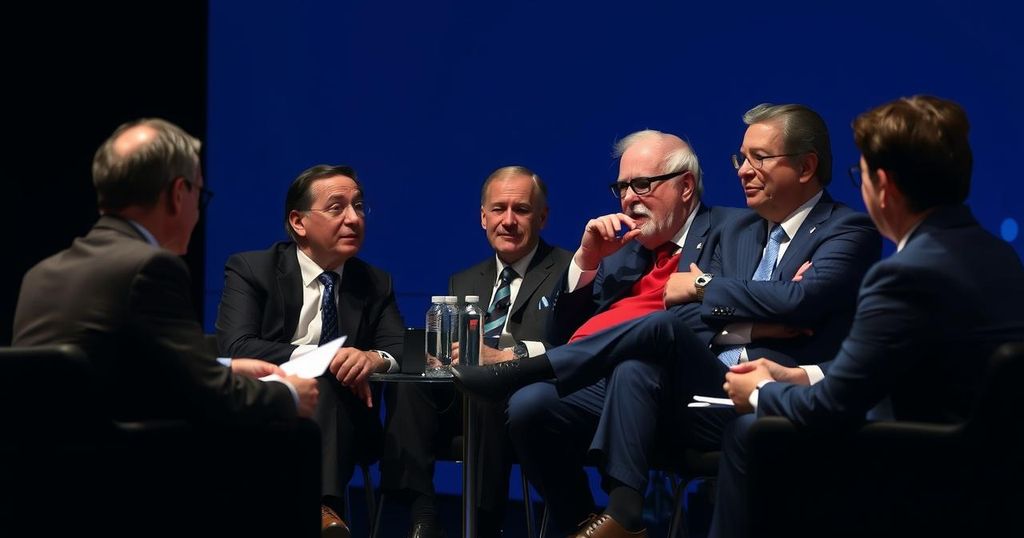The article highlights the upcoming European Parliament elections and the formation of a new European Commission, raising questions about the leadership in Europe. Chancellor Olaf Scholz of Germany struggles to meet expectations, while President Emmanuel Macron of France strives to assert his influence as a progressive thinker. The discourse features insights from policy experts discussing the implications of these leaders’ actions on the EU’s future.
The impending elections for the European Parliament and the subsequent formation of a new European Commission underscore a pivotal moment for the European Union. In the context of these developments, the question arises as to who is exerting leadership within Europe. German Chancellor Olaf Scholz initially embraced a vision of governance that prioritized the European interest; however, his tenure has led to widespread disappointment among various stakeholders. Conversely, French President Emmanuel Macron has reiterated his ambition to be viewed as the continent’s “progressive thinker,” yet he is perceived as lacking the necessary influence to bring his vision to fruition. Against this backdrop, a panel, comprised of esteemed policy experts Jana Puglierin and Jacob Ross, convened to examine the current state of European leadership, analyzing its implications for the future direction of the European Union.
The European Union stands at a crossroads with the approaching elections for the European Parliament. This electoral process will set the stage for the establishment of a new European Commission, which will play a crucial role in directing key policies across various challenges facing the EU. As Europe grapples with shifting political dynamics, the ability of its leading figures, specifically Chancellor Scholz of Germany and President Macron of France, to assert effective leadership is increasingly scrutinized. Scholz’s pro-European rhetoric has faltered, while Macron’s aspiration to position himself as a key continental thinker is met with skepticism regarding his overall influence.
In conclusion, the debate around leadership within Europe highlights the complex interplay of national interests and collective aspirations amidst a significant electoral period. The performance of both Chancellor Scholz and President Macron is critical, as their respective abilities to navigate the political landscape will determine the EU’s trajectory in the near future. The discussions initiated in this debate will continue to resonate as Europe seeks to solidify its leadership in a dynamically changing global environment.
Original Source: dgap.org

Leave a Reply